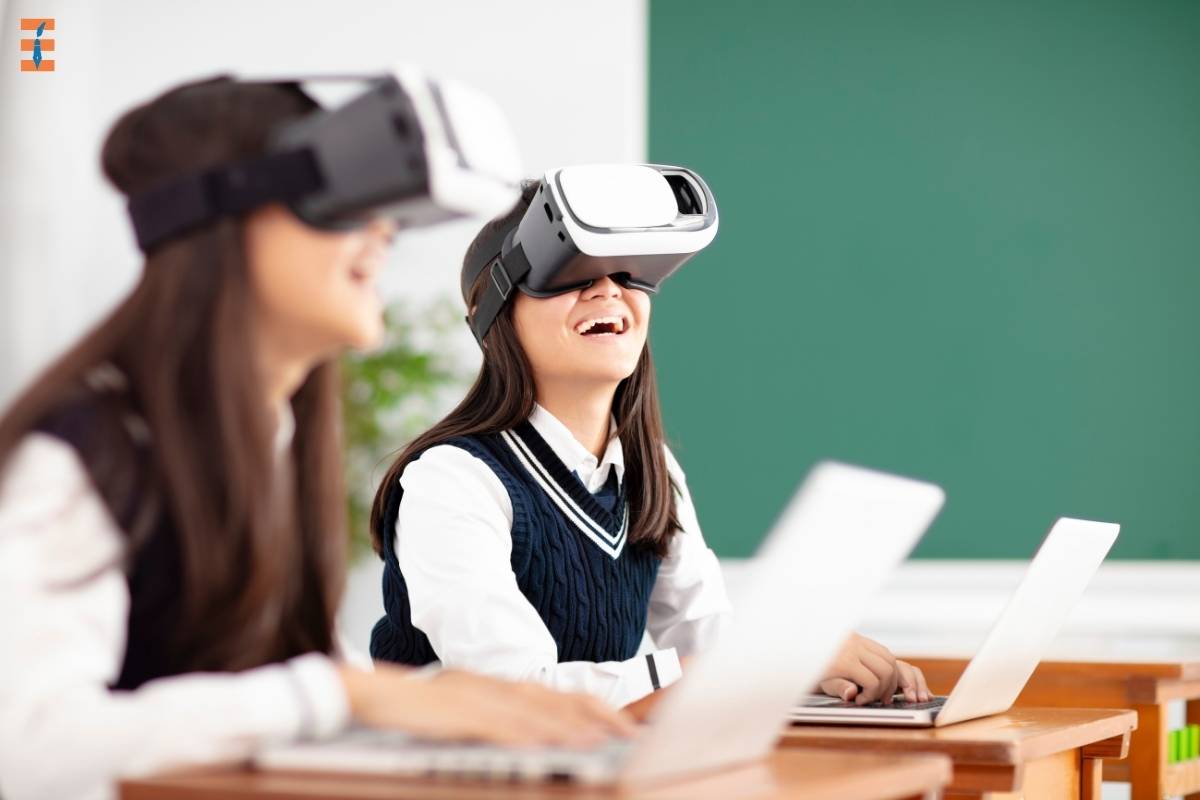As technology continues to reshape our world, the concept of the metaverse is emerging as a revolutionary force in various sectors. In particular, the metaverse is making substantial waves in education, offering a transformative approach to teaching and learning. This article explores the potential of the metaverse in education, shedding light on its current applications, benefits, and the future it envisions for classrooms worldwide.
Understanding the Metaverse:
The metaverse is a collective virtual shared space, merging the physical and digital worlds to create an immersive, interactive, and interconnected environment. Unlike traditional virtual spaces, the metaverse is not confined to a single platform or experience; instead, it encompasses a spectrum of virtual and augmented reality environments. This interconnected digital universe has the potential to revolutionize the way we work, socialize, and, notably, how we educate.
Current Applications of Metaverse in Education:
1. Virtual Classrooms

Virtual classrooms within the metaverse provide a dynamic and interactive space where students and teachers can engage in real-time. These environments allow for immersive experiences, enabling students to feel present in a virtual classroom and fostering a sense of community even in a digital realm. Teachers can use virtual whiteboards, share multimedia content, and create interactive lessons to enhance student engagement.
2. Simulated Learning Environments
The metaverse offers the opportunity to create realistic and immersive simulated learning environments. From historical reenactments to scientific experiments, students can step into scenarios that would be challenging or impossible to recreate in the physical world. This hands-on, experiential learning can significantly deepen understanding and retention of complex concepts.
3. Global Collaboration
Breaking down geographical barriers, the metaverse enables students and educators from around the world to collaborate seamlessly. Virtual meeting spaces and collaborative projects become accessible, fostering a global perspective and cultural exchange among students. This interconnectedness prepares students for a future where cross-cultural communication and collaboration are essential skills.
Benefits of the Metaverse in Education:
1. Accessibility and Inclusivity
The metaverse has the potential to address accessibility challenges in education. Students with physical disabilities, geographical constraints, or other limitations that may hinder traditional learning can access educational content in a virtual environment. This inclusivity ensures that education becomes more equitable and reaches a broader spectrum of learners.
2. Engagement and Interactivity
Immersive experiences in the metaverse captivate students’ attention in ways traditional methods often struggle to achieve. Interactive simulations, virtual field trips, and gamified learning activities enhance student engagement, making the educational experience more enjoyable and effective. The metaverse transforms passive learning into an active, participatory process.
3. Adaptability and Personalization

The metaverse in education allows for adaptive learning experiences tailored to individual students’ needs. AI-driven platforms can analyze students’ progress, preferences, and learning styles to create personalized learning paths. This adaptability ensures that each student receives the support and challenges necessary for their unique educational journey.
4. Cost-Efficiency
Virtual classrooms and digital resources in the metaverse can contribute to significant cost savings for educational institutions. Reduced infrastructure costs, such as building maintenance and transportation, coupled with the ability to scale resources more efficiently, make the metaverse an economically viable option for delivering high-quality education.
5. Future-Ready Skill Development
Exposure to the metaverse equips students with digital literacy, critical thinking, and problem-solving skills essential for the future. Navigating virtual environments, collaborating in a digital space, and leveraging emerging technologies become inherent components of education, preparing students for the demands of the rapidly evolving job market.
Challenges and Considerations of Metaverse in Education:
While the metaverse holds immense promise for education, several challenges and considerations must be addressed:
1. Digital Inequality
The accessibility of the metaverse relies heavily on digital infrastructure and internet connectivity. Ensuring that all students, regardless of socio-economic background, have access to the necessary technology is crucial to prevent exacerbating existing digital inequalities.
2. Privacy and Security
As educational activities move into virtual spaces, concerns about data privacy and security become paramount. Safeguarding student information and maintaining secure virtual environments must be a top priority for educational institutions venturing into the metaverse.
3. Teacher Training and Adoption

Implementing the metaverse in education requires educators to adapt to new technologies and teaching methodologies. Comprehensive training programs are essential to ensure teachers can effectively leverage the metaverse for optimal student outcomes.
4. Content Quality and Curation
Developing high-quality educational content within the metaverse is a challenge that requires careful consideration. Curriculum design, interactive activities, and assessments must align with educational standards and goals to provide meaningful learning experiences.
Conclusion:
The metaverse in education has the potential to redefine education, offering a paradigm shift in how we teach and learn. By creating immersive, interactive, and globally connected learning environments, the metaverse addresses the evolving needs of the 21st-century learner. While challenges exist, the transformative benefits, including increased accessibility, engagement, and adaptability, position the metaverse as a powerful ally in shaping the future of education. As educators, students, and institutions embark on this digital journey, the metaverse stands as a beacon of innovation, inviting us to reimagine the possibilities of education in the digital age.
Also Read: Navigating the Future: A Complete Exploration of Hybrid Learning in Education

